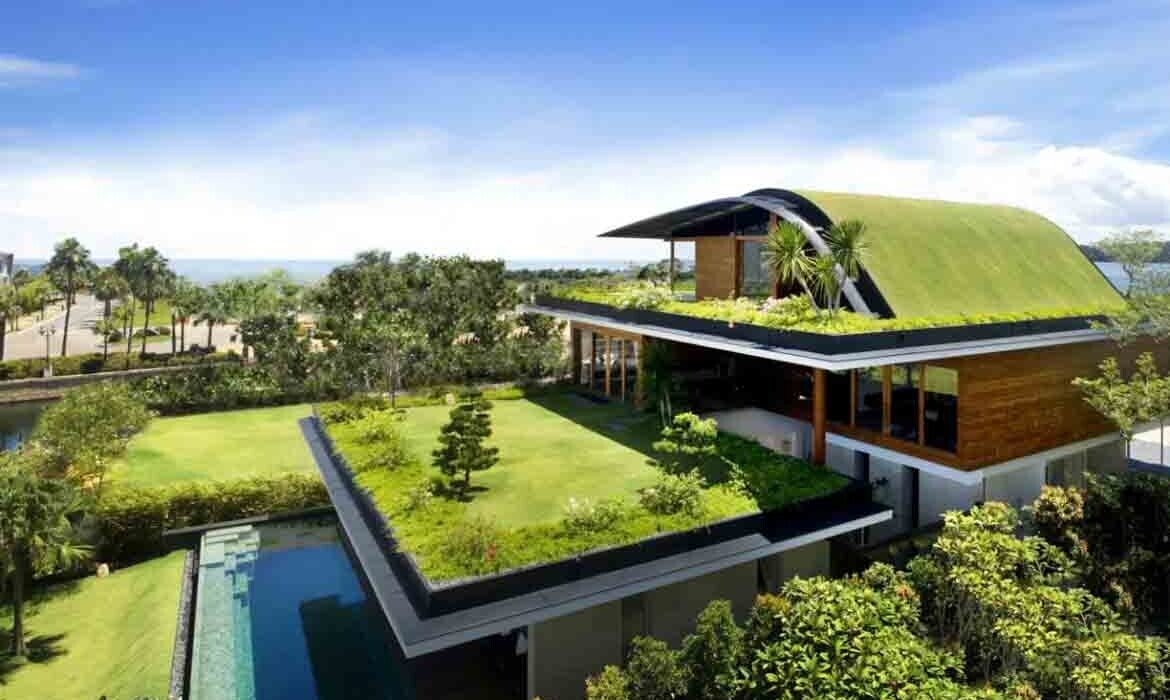Today, the concept of Smart Eco-Friendly Housing in Nigeria: A Sustainable Revolution is going to be our focus. In recent years, Nigeria has witnessed a remarkable transformation in its housing sector, marked by a surge in the construction and adoption of smart eco-friendly homes. This paradigm shift is not merely a reflection of architectural trends but underscores a growing awareness and commitment to sustainable living practices. This article delves into the rise of smart eco-friendly housing in Nigeria, exploring the factors driving this shift, the technologies involved, and the impact on both the environment and the lives of residents.
I. The Urgency of Eco-Friendly Housing in Nigeria
A. Environmental Concerns
Nigeria, like many other nations, faces environmental challenges, including deforestation, pollution, and energy consumption. The housing sector, traditionally a significant contributor to these issues, is now at the forefront of adopting eco-friendly practices to mitigate its environmental impact.
B. Population Growth and Urbanization
The rapid urbanization and population growth in Nigeria have spurred an increased demand for housing. This necessitates a reevaluation of construction practices to ensure sustainable development. Smart eco-friendly housing emerges as a solution that not only accommodates the rising population but also addresses environmental concerns.
II. Driving Forces Behind the Rise
A. Government Initiatives
Government initiatives play a pivotal role in promoting sustainable practices in the housing sector. In Nigeria, policies and incentives encouraging the construction of eco-friendly homes, such as tax breaks and subsidies, have fueled the adoption of green building technologies.
B. Changing Consumer Preferences
A discerning and environmentally conscious consumer base is a driving force behind the surge in eco-friendly housing. Modern homeowners in Nigeria increasingly prioritize energy efficiency, waste reduction, and overall sustainability when choosing their residences.
III. Technologies Shaping Smart Eco-Friendly Homes
A. Renewable Energy Integration
Smart eco-friendly homes in Nigeria are harnessing the abundant sunlight through solar panels to generate clean and sustainable energy. This not only reduces dependence on conventional energy sources but also lowers utility costs for homeowners.
B. Intelligent Home Automation
The integration of smart home technologies allows residents to monitor and control various aspects of their homes remotely. From energy-efficient lighting systems to smart thermostats that optimize energy usage, these technologies enhance the overall sustainability of the living space.
C. Sustainable Building Materials
The choice of building materials is a crucial aspect of eco-friendly housing. Sustainable materials, such as bamboo, recycled steel, and energy-efficient glass, are gaining popularity in Nigerian construction projects, reducing the carbon footprint of buildings.
IV. The Impact on Environment and Residents
A. Reduced Carbon Footprint
The adoption of eco-friendly practices in housing contributes significantly to the reduction of carbon emissions. Smart homes with energy-efficient features minimize energy consumption, resulting in a positive environmental impact.
B. Cost Savings for Homeowners
While the initial investment in smart eco-friendly homes may be higher, the long-term benefits, such as reduced utility bills and maintenance costs, result in significant savings for homeowners. This economic incentive further encourages the adoption of sustainable living practices.
C. Improved Quality of Life
Residents of smart eco-friendly homes experience an improved quality of life. From better air quality due to advanced ventilation systems to the psychological benefits of living in a sustainable environment, these homes prioritize the well-being of their occupants.
V. Challenges and Future Prospects
A. Affordability and Accessibility
One of the primary challenges in the widespread adoption of smart eco-friendly housing in Nigeria is the perceived high initial costs. Addressing this challenge requires strategic policies and initiatives aimed at making sustainable technologies more accessible to a broader segment of the population.
B. Technology Advancements and Innovations
The future of smart eco-friendly housing in Nigeria is bright, with ongoing technological advancements and innovations. From advancements in energy storage solutions to the integration of artificial intelligence for more efficient home management, these innovations will further enhance the sustainability and intelligence of homes.
VI. Conclusion
The rise of smart eco-friendly housing in Nigeria is not just a trend but a crucial response to the environmental and social challenges facing the nation. With government support, changing consumer preferences, and advancements in technology, Nigeria is poised to lead the way in sustainable living practices. As the nation embraces these innovations, the impact on the environment, the economy, and the well-being of its residents is set to be profound, marking a transformative era in Nigeria’s housing landscape.

